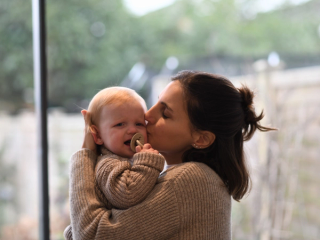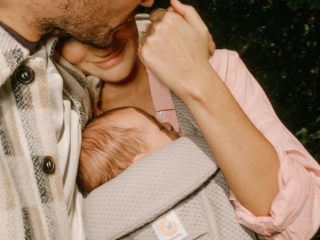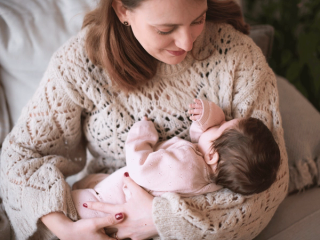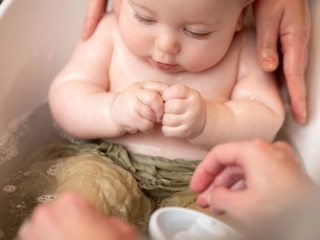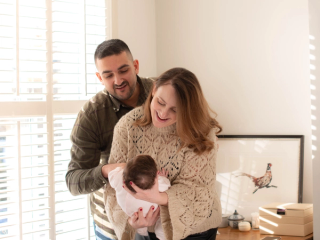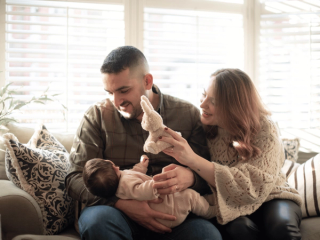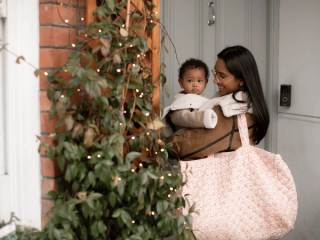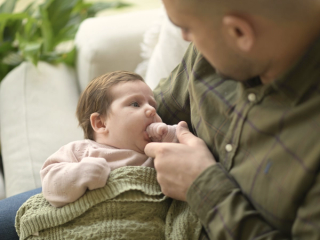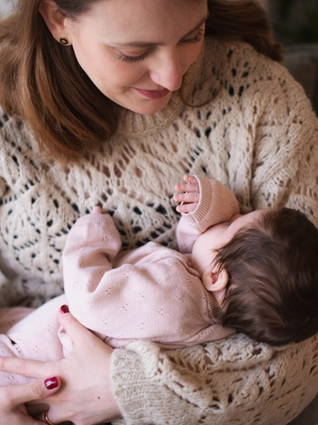
- Home
- Advice Hub
- Newborn
- New Parent Support
- Register A Birth
Registering the Baby’s Birth
Where should I register my baby’s birth?
Who can register a baby’s birth?
How long do you have to register a birth?
Does the baby need to be present when registering a birth?
How long does it take to register a birth?
What do I need to register a birth?
What documents do I need to register a birth?
What is a birth certificate and what does it cost?
FAQs about registering a birth
Reviewed by Christine Lane, Midwife and Consultant, on the 24.09.2025
Registering your newborn baby’s birth is a legal requirement. Of course, it’s helpful for the government to know how many people they’re responsible for, but it also enables you and your baby to do things like register with a doctor, get a passport, apply for child tax credits, and more. Registering your baby’s birth gives them the full rights of a citizen, which is why it’s so important.
Where should I register my baby’s birth?
Some hospitals provide the facility for birth registration on-site, but many don’t. So, it’s worth finding out before you leave the hospital. Registry offices are responsible for registering births, deaths and marriages, and they can get very busy. You should always make an appointment to register a birth; don’t assume you can just pop in.
If you’re not sure where your local registry office is, visit GOV.UKwhere you can search based on your postcode. Ideally, your baby will be registered in the office local to where they were born. However, if this isn’t possible, you can register them in the closest office to where you are – they will send the paperwork on to the right place.
Who can register a baby’s birth?
The process of registering a birth in the UK varies slightly depending on your family’s circumstances. If the parents are married or in a civil partnership at the time of the baby’s birth or conception, either parent can register the birth. If the parents are not married or in a civil partnership, the father’s details can only be included on the birth certificate if he is present at the registration or if additional documentation, such as a signed declaration, is provided.
In same-sex female relationships, if the couple are married or in a civil partnership at the time of conception via fertility treatment or donor insemination, both can be registered as the child’s legal parents. In this case, either partner can register the birth alone. If the couple are not married or in a civil partnership, they must register the birth together in order for both names to appear on the birth certificate, or they can complete a statutory declaration of parentage.
For male same-sex couples, a parental order from the court is needed to be legally recognised as parents and included on the birth certificate.
How long do you have to register a birth?
In England and Wales, the law requires birth registration to take place within 42 days (6 weeks) of the baby’s birth. In Scotland, the law is 21 days (3 weeks).
Does the baby need to be present when registering a birth?
No, you don’t need to take the baby along to register their birth.
How long does it take to register a birth?
The appointment itself is quite straightforward and shouldn’t take very long. But bear in mind that even with a fixed appointment time, you might find there are delays. If you’re taking your baby with you, it’s best to pack your changing bag as though you’re in it for the long haul!
What do I need to register a birth?
The birth certificate records a lot of details about the baby and about you, as parents! You’ll need to provide information about the date, time and place of birth, the baby’s sex, as well as – of course – your chosen forenames and surname. All the birth details can usually be evidenced by the red book you were issued at the hospital.
Both parents, if appearing on the birth certificate, will need to provide their full name (and any previous names, if they have changed), date and place of birth, current occupation and home address.
What documents do I need to register a birth?
In order to provide evidence of all the above details, you’ll need to take specific documents with you to register the birth. The red book you were issued at the hospital provides all the details you’ll need about your baby. Your passport, driving licence or birth certificate will provide evidence of your name. If you’ve changed your name, take your marriage licence or deed poll documents with you. Proof of address can be given by a recent utility bill or council tax documents, or by your driving licence.
What is a birth certificate and what does it cost?
The birth certificate is the official documentation that is presented when you register your baby’s birth or sent on shortly afterwards. You might need to provide a copy of your birth certificate when applying for government services or perhaps to prove your right to work in the UK as an adult. So, there is a benefit to having a physical copy on file.
There is no cost associated with registering a birth, but you do have to pay a small fee (£11) for a birth certificate. There are two types of birth certificate, both carrying the same charge:
- The short version – only the baby’s details
- The full version – with parents’ details included
You can buy additional copies, and you can go back for more copies at a later date. So if you lose it, it’s not the end of the world. (Though try not to!)
FAQs about registering a birth
How long do you have to register a birth?
In England, Wales and Northern Ireland, you have 42 days (6 weeks) to register your baby’s birth. In Scotland, it’s half that – 21 days (3 weeks). Bear in mind you do need to make an appointment to register the birth, so don’t leave it until the last minute!
Does baby need to be present when registering a birth?
No, you do not need to take your baby with you when registering their birth.
How long does it take to register a birth?
Birth registration isn’t arduous – registering a birth usually takes about 20 minutes. However, it’s best to anticipate it will take a bit longer, so if you are leaving the baby with someone make sure they have ample supplies.
This information is relevant for the UK only. For those in Ireland, please refer to the HSE website to register a birth.
